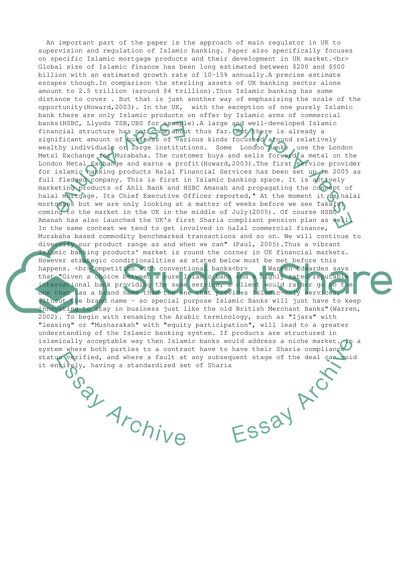Cite this document
(“Growth of Islamic banking in UK Case Study Example | Topics and Well Written Essays - 4000 words”, n.d.)
Retrieved de https://studentshare.org/business/1530961-growth-of-islamic-banking-in-uk
Retrieved de https://studentshare.org/business/1530961-growth-of-islamic-banking-in-uk
(Growth of Islamic Banking in UK Case Study Example | Topics and Well Written Essays - 4000 Words)
https://studentshare.org/business/1530961-growth-of-islamic-banking-in-uk.
https://studentshare.org/business/1530961-growth-of-islamic-banking-in-uk.
“Growth of Islamic Banking in UK Case Study Example | Topics and Well Written Essays - 4000 Words”, n.d. https://studentshare.org/business/1530961-growth-of-islamic-banking-in-uk.


